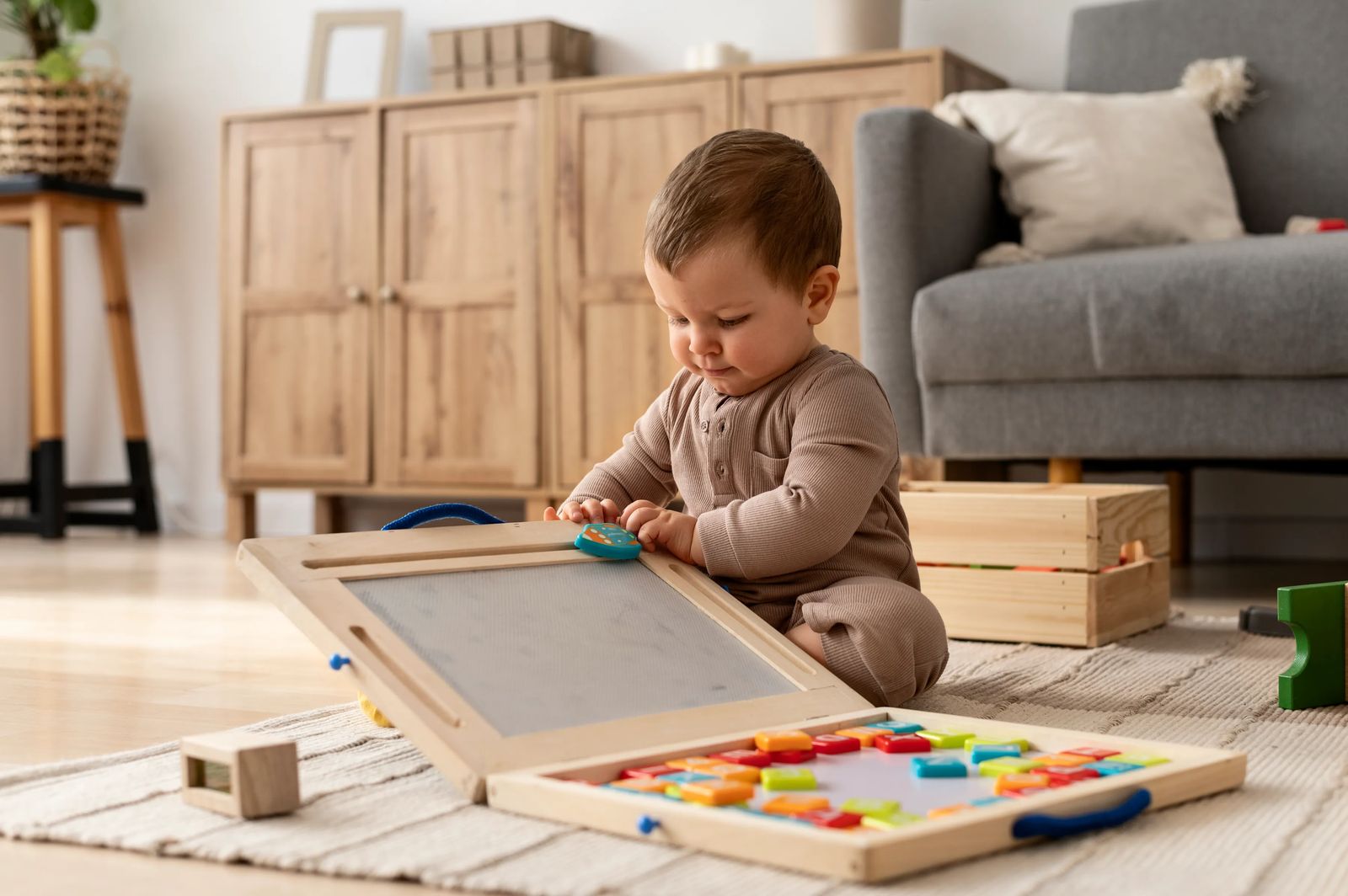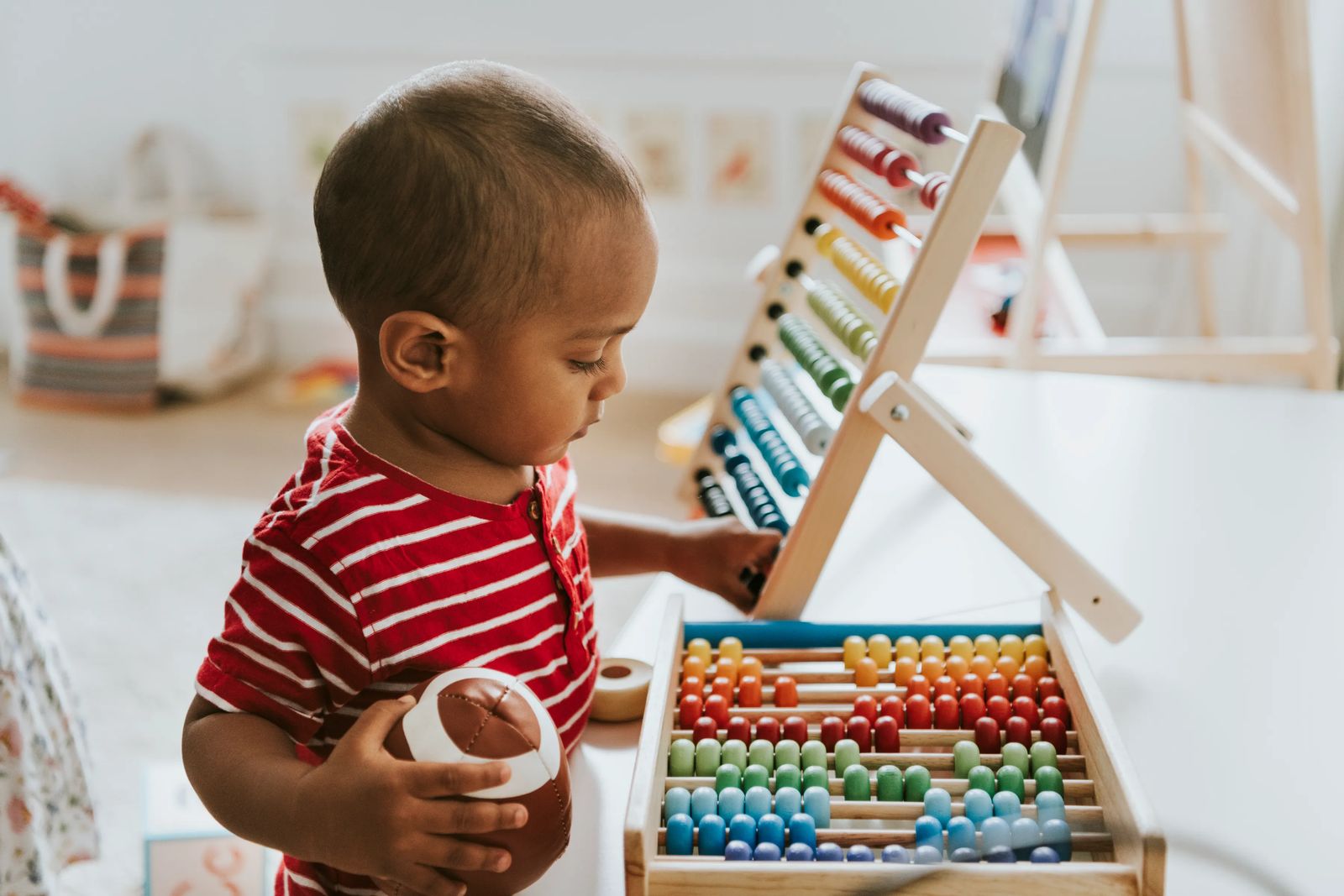10 Things Your Child Really Needs to Thrive
What does your child really need to thrive?

As parents, we all want our children to thrive, mentally, physically, and emotionally. But it isn’t easy to know exactly what he or she needs, and when. But when parents understand the child’s natural stages of development and corresponding needs, everything is suddenly much easier.
Fortunately for us, Maria Montessori discovered that children everywhere follow certain patterns of behavior or “human tendencies” as they grow and develop. Children, and indeed human beings, are hard-wired to use common behaviors to get their basic needs met. Now, through Montessori’s discoveries (which have been time-tested and scientifically verified again and again over the past century), parents can help their children flourish by understanding these deeply ingrained behaviors.
So, what are these “human tendencies”?
According to the Montessori Method, our children’s developmental needs, or “human tendencies” can be grouped into the following 10 categories:
- Orientation
- Order
- Exploration
- Communication
- Movement
- Manipulation of objects
- Repetition
- Precision
- Imagination
- Control of error leading to perfection
Orientation

Children have an innate need to know where they are in their surroundings. Young children want to explore, but they want clear guidelines for where they can go, and how to get back. Helping children develop their orientation skills will ultimately help them navigate life, both physically and socially.
Order
Children need two types of order: internal and external. By providing an orderly environment, parents can help their child’s sense of order flourish. Order brings security. They need to know what to expect and when to expect it. Fulfilling the child’s need for order will prepare him for concepts such as sequencing and sorting.

Exploration
Children are constantly exploring their environment with their senses--soaking in all the sounds, sights, tastes, smells, and textures around them. Parents can help by providing a safe, sensory-rich environment for their children with maximum exploration potential.
Communication
Communication is what makes it possible for humans to pass information from one individual to the next. Children are born with an essential need to communicate. Even very young children use facial expressions, gestures, and speech to communicate their basic needs. Parents can help their children learn simply by talking to them (even tiny infants, even when no one else is around, even if you are usually a person of few words--talk, talk, talk to your little ones!) Ultimately, the child’s tendency toward communication leads him to the written word and reading.
Movement

As the child learns movement, he develops not only muscular control (or motor control) but also experiences neuromuscular expansion. Every parent knows that trying to immobilize a small child is an uphill battle at best. Maria Montessori observed that children naturally seek activity as a way of learning to use and coordinate movement. In other words, children must move in order to master movement. So the parent’s goal is to allow movement and to guide the child toward activities that correlate with their inner developmental needs.
“We must…desist from the useless attempt to reduce the child to a state of immobility. We should rather give ‘order’ to his movement, leading them to those actions towards which his efforts are actually tending.” ~Maria Montessori, Dr. Montessori’s Own Handbook
Manipulation of objects

Children simply need to handle objects to understand them. We humans are born with an inner need to touch, hold, and shape objects in their environment.
“The hands are the instruments of man’s intelligence.” ~Dr. Maria Montessori
Repetition
Your child has a burning need to repeat certain tasks over and over again. She is trying to master that task and she is compelled by her inner teacher to do so. Maria Montessori teaches us that this repetition is complete only when the child decides she is finished. Parents can help by recognizing when their child is engaged in
repetition (she will often seem hyper-focused) and making every possible effort to NOT interrupt. If the child is given the time and freedom she needs, she will not only master the task at hand, but will also be developing her ability to concentrate and gaining a sense of accomplishment.

Precision
Your child has an innate tendency to seek “perfection” in his work. He will build on his other abilities, such as manipulation of objects, order, and repetition, to satisfy his sense of exactness. Parents can help by having as much patience as they can muster. As with repetition, it can be hard to honor your child’s needs when they feel downright obsessive to you. But denying or disrupting a child who is trying to fulfill his inborn developmental needs is going to be much, much harder, on everyone involved.
“Sometimes very small children in a proper environment develop a skill and exactness in their work that can only surprise us.” ~Maria Montessori

Imagination
Montessorians define imagination as the ability to visualize something you can’t actually see. Children have a need to create the things they can visualize in their minds. Parents can help by providing the right tools and the freedom to express what they’re imagining. Painting, crafting, drawing, music, and storytelling are all positive ways for children to use their imaginations.
Control of error leading to perfection
Here you see all of your child’s tendencies working together. She explores her environment and is drawn to a certain material or task. She manipulates the materials and imagines what she would like the outcome to be. She repeats the manipulations seeking order and precision. She notices her own errors and continues to work in pursuit of “perfection.” (By the way, the idea of perfection is your child’s idea, not yours as the parent or adult.) Your child then experiences a deep sense of satisfaction, joy, and accomplishment when she has achieved her own idea of perfection.
The underlying tendencies that drive human behavior are everywhere, in every culture and throughout time. Once we become aware of these tendencies, we can encourage children to follow their own, inner motivations. Self-motivated children are far more calm, focused, and satisfied than those being steered against their inner currents.
Once we recognize these universal tendencies, the question becomes, how can we facilitate and nurture their natural unfolding? Precisely because these tendencies became evident to Maria Montessori, their unfolding is observed, respected, and nurtured.
~ Excerpt from Authentic Institute of Montessori’s online Child Development Course




















